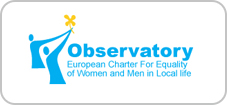Home /
News /
In-depth news /
Equality
next > < previous
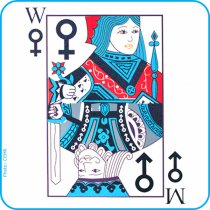
Equality of women and men in local life

Equality - 08.03.2014
International Women's Day: 8 gender-equality advocates answer our questions
Each year, on 8 March, women all over the world are celebrated. It is a chance to focus attention on gender equality which is not always respected. In order to take measure of this reality, we have asked eight gender equality advocates to answer some questions.
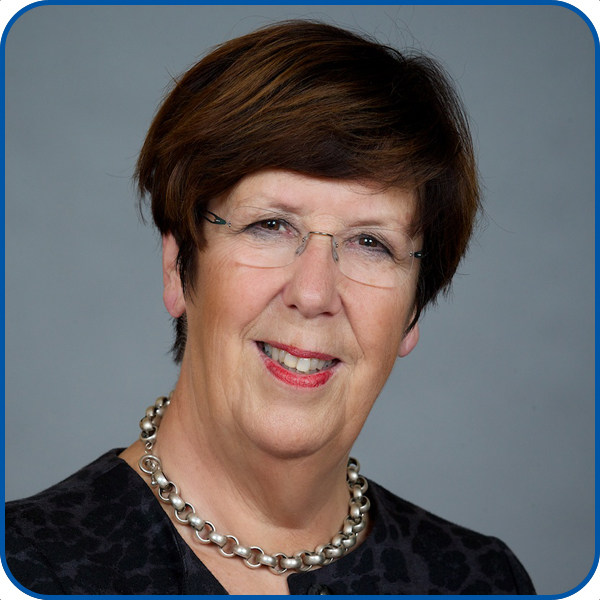
Annemarie Jorritsma (President of the Council of European Municipalities and Regions)
In today’s particularly difficult economic and social environment, what messages would you like to pass on to the European institutions with respect to gender equality?
I would like to invite both current and prospective Members of the European Parliament of the need to remain vigilant if we are to prevent the crisis from taking us a step back in the fight for gender equality. The crisis has placed a number of women in fragile situations in some regions, as they are often harder hit than men when public services are cut.
In keeping with what is presented in our “local and regional governments’ Manifesto”, I call on the European institutions to support initiatives promoting gender equality, to fight for the recognition of equal rights, and to endeavour to ensure that all citizens can take part in shaping the future of Europe.
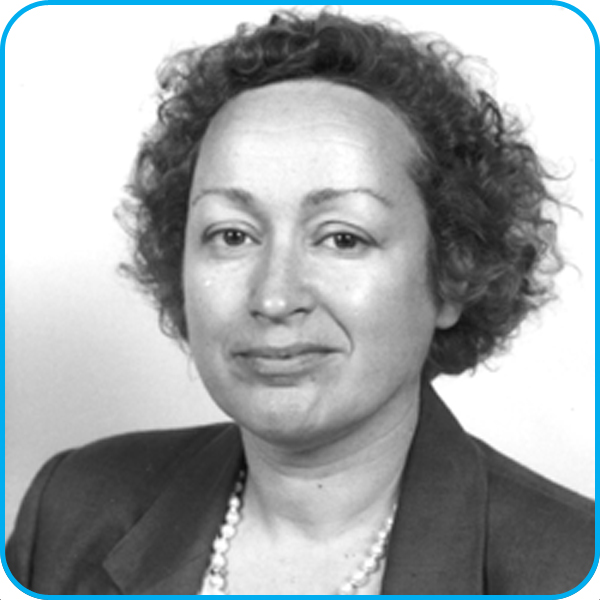
Patrizia Dini (Italian Association of CEMR (AICCRE), Tuscany Region)
You were one of the leading forces behind the European Charter for equality of women and men in local life. Today, the Charter has been signed by 1 400 local and regional authorities in 29 countries, including 400 in Italy. In light of this success, what are the steps that you think need to be taken next?
Italy accounts for 430 of the Charter’s signatories and, in six of the twenty regions, 120 authorities have undertaken gender-based analyses of their budgets. One region has even managed to establish action plans and budgets taking gender issues into account, in accordance with the principal of vertical subsidiarity.
However, our experiences have shown that there is a need for administrators, political officials and personnel to receive training in the principles of gender mainstreaming.
European citizenship confers rights regardless of gender, race, religion, language, personal or social status. Yet, in order for equality to become a reality at the level closest to the citizens, the cultural and political barriers which act as enablers of discrimination, must be taken down. Today, being female still means facing many forms of discrimination in all areas of life: economic, social, civil and political.
Efforts must continue to increase the number of women in politics and in decision-making positions. CEMR’s role is therefore to promote and strengthen the role of the local or regional authority and to ensure that its leadership is made up of 50% women.
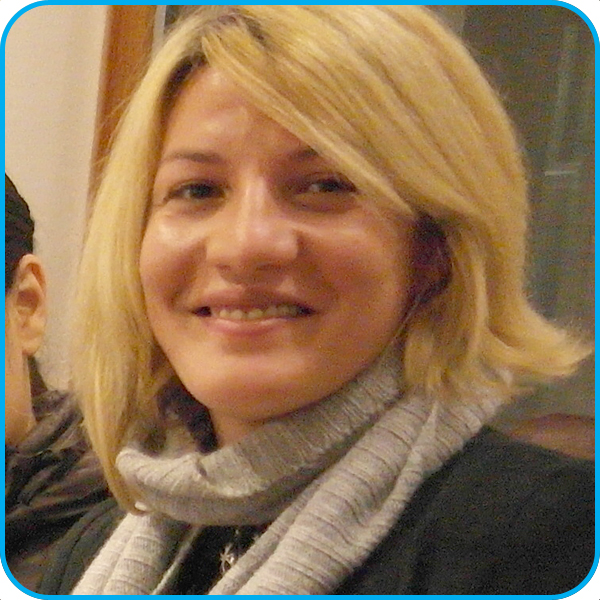
Tamar Bagratia (National Coordinator of the National Association of Local Authorities of Georgia)
Some people say: “Every day is Women's Day”. Is this particular date simply an easy way of easing one’s conscience or does it contribute its own added value?
In Georgia, where social consciousness has been changing gradually, 8 March is still considered a day to give flowers to women. Instead, on this day we should be telling men: we do not need flowers; we need equal rights and opportunities!
Stereotypical attitudes regarding the status of women, derived from patriarchal tendencies in Georgia’s traditions and culture, still dominate in this country. International Women's Day carries a double meaning: some people use this day to underscore the marginalisation of women, while others with more liberal views and sufficient understanding of the issue see this day from the context of equal rights and opportunities.
Let us seize on this day as an opportunity to spread the message that gender equality is not just a question for women but also for men, not just once a year but every day.
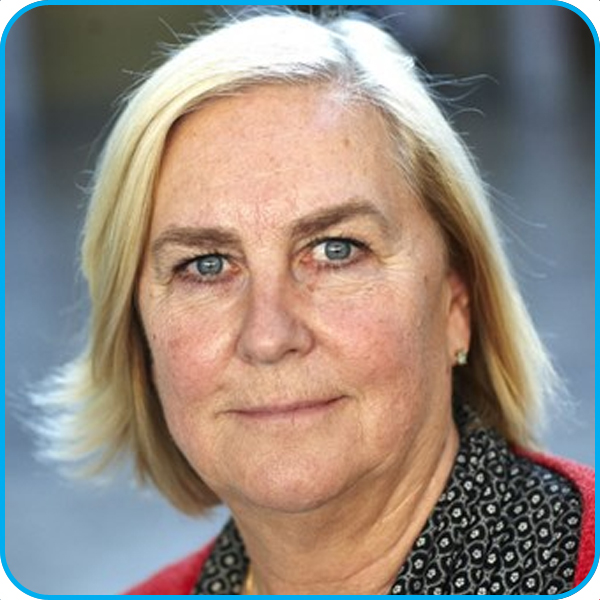
Ewa Samuelsson (Chair of the Standing Committee for Equality, Vice Mayor, City of Stockholm - Sweden)
How can the European Charter for Equality of women and men in local life and the Observatory (www.charter-equality.eu) serve as concrete tools to help tackle gender inequalities at the local level?
The Charter was launched by CEMR in 2006 to encourage local and regional authorities in Europe to make a public commitment in favour of equality. It includes not only basic rights but solid methods on how to improve equality in different areas as well. It is a concrete tool that can be used by local and regional authorities in their efforts to strengthen equality, for example as employers or in urban planning. The Charter has been a real success and to date has been signed by more than 1400 authorities in 29 countries. To follow up on the work brought about by the Charter and to provide support to the signatories, CEMR set up “the Observatory” and the website www.charter-equality.eu which provides information about the Charter, its signatories, and a guide on how to draft action plans as well as examples of good practices from different countries.

Ibon Uribe (Member of the EUDEL Executive - Member of the Standing Committee for Equality)
How can an association of local governments such as EUDEL contribute to the promotion of gender equality? Given the association’s long-standing involvement and commitment in support of gender equality and the European Charter on Equality of women and men in local life, what would constitute its greatest achievement on the ground?
The Association of Basque Municipalities, EUDEL, seeks to strengthen local governance and devising local policies promoting gender equality is a key step towards creating more democratic local governments.
EUDEL has been the driving force in the setting up of the 'Berdinsarea', a network of municipalities (covering 75% of the Basque population) that coordinates and assesses local policies, programmes and services in favour of equality and the prevention of violence against women. The network consists of technical experts from the local councils who remain in close contact with women’s associations. EUDEL also supports less experienced municipalities by providing them with resources and expertise on equality issues.
EUDEL also coordinates the 'Basqueskola’, a Basque network of women local elected representatives that offers opportunities for the collective and individual empowerment of women in local politics.
Politicians, and I am referring to men in particular, often claim that they support policies of equality but do not follow up with any real action proposals. I believe that we need to show that we are truly committed to gender equality and must raise awareness even more in order to underline the importance of this issue.
To further expand upon our actions, we support the development of a system of comparative assessment of European municipalities. Such a shared tool would provide us with an objective way of measuring our activities as well as allowing us to maximise our strengths and minimise our weaknesses.
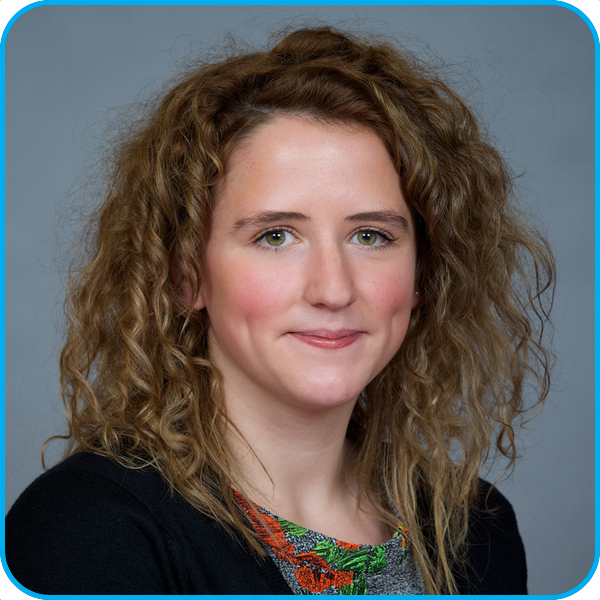
Mairi Evans (Chair of the Committee of young local and regional elected representatives - Councillor of Angus, Scotland)
As a woman elected representative, what would you say are the most topical problems faced by young women in today’s society? What would be your top three priorities in tackling inequalities?
Over the past decades, many European societies have developed a better understanding of the role that women play in a more gender-balanced society. Being a young woman myself, I would say that we have been able to reap some of the benefits of this awareness. But it also needs to be said that before being able to tap into the full potential that comes with an equal society, challenges remain – for instance with striking the right balance between work and family and encouraging female participation in politics, employment and society.
At the local level, we can often see that there are more men standing in local elections than women. In the last Scottish local elections two years ago, less than 30% were female candidates. Angus Council, of which I am a member, had one of the highest percentages of women candidates with 34%. Among the issues that female candidates point to are a lack of encouragement for female participation, such as child care facilities at council office, which might deter young women from standing in elections. We can see these challenges in many other areas of society, not only in local politics.
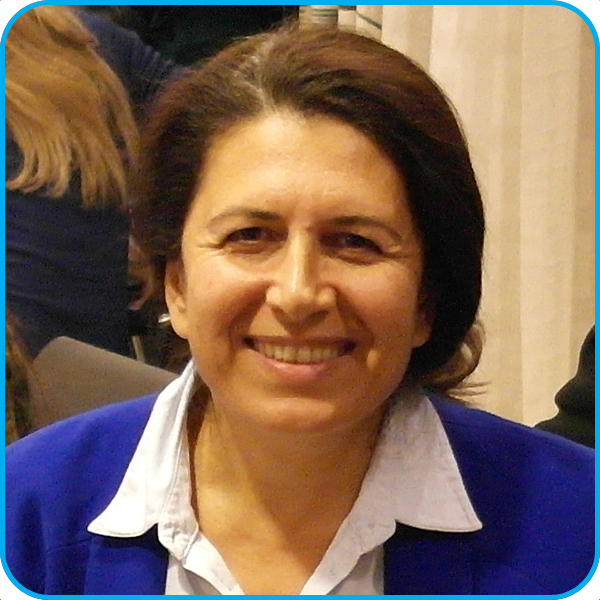
Serife Hasoglu (Councillor, Municipality of Tarsus - Turkey)
You recently organised a car race competition in Tarsus. As a Councillor of this municipality you stipulated that its organisation would be conditional upon women being allowed to participate as drivers in the competition as well. How was this viewed by the citizens?
The citizens were very surprised to see women drivers. The men were cheering with amazement, pointing at the women participating in the race. The women drivers responded to this extra attention with humour and put on a small acrobatic show. We also asked some women present at the race if they wanted to act as co-pilots and accompany the women drivers. This was appreciated by the audience and many people took photos. It was a beautiful and colourful day. We believe that these women are role models for our citizens. Since then, we have organised mixed races as well as a race only for women.
I am proud of having taken this decision since I think that it was an important message to show the women drivers as role models.
Our municipality, together with civil rights groups, has also organised many other activities for women such as photography exhibits, painting courses, cycling groups; we have also employed women bus drivers, etc.
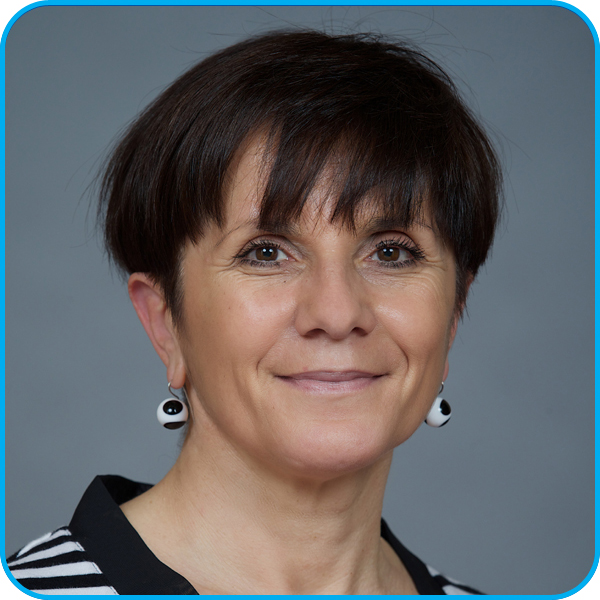
Jocelyne Bougeard’s Contribution (Vice-Chair of the Standing Committee for Equality, Deputy Mayor of the City of Rennes)
There has been a great deal of public debate in France of late, particularly on such questions as education on gender issues in school, gay marriage or the adoption of the new equality law. How have these debates influenced your work as a woman local elected representative?
Strong opposition has been built up against the governmental policies of the ministry for women’s rights by those who favour a conservative model of the traditional French family. This movement disputes the rights granted under the “marriage for all” bill passed last year. It also supports the Spanish government’s decision restricting abortion and uses scare tactics by warning against the dangerous influence of gender theory which has allegedly been introduced into school curriculums, and which is untrue.
The French Minister for Women’s Rights on the other hand has been promoting actions at the level of local and regional authorities, notably in the areas that are concerned by the commitments set out in the European Charter for equality of women and men in local life, and has invited authorities to implement and sign this document.
These demonstrations of opposition without basis have strengthened the determination of local authorities in France to proceed resolutely, with transparency, informed citizens, commitment and an evaluation of these commitments.
Annemarie Jorritsma (President of the Council of European Municipalities and Regions)
In today’s particularly difficult economic and social environment, what messages would you like to pass on to the European institutions with respect to gender equality?
I would like to invite both current and prospective Members of the European Parliament of the need to remain vigilant if we are to prevent the crisis from taking us a step back in the fight for gender equality. The crisis has placed a number of women in fragile situations in some regions, as they are often harder hit than men when public services are cut.
In keeping with what is presented in our “local and regional governments’ Manifesto”, I call on the European institutions to support initiatives promoting gender equality, to fight for the recognition of equal rights, and to endeavour to ensure that all citizens can take part in shaping the future of Europe.
Patrizia Dini (Italian Association of CEMR (AICCRE), Tuscany Region)
You were one of the leading forces behind the European Charter for equality of women and men in local life. Today, the Charter has been signed by 1 400 local and regional authorities in 29 countries, including 400 in Italy. In light of this success, what are the steps that you think need to be taken next?
Italy accounts for 430 of the Charter’s signatories and, in six of the twenty regions, 120 authorities have undertaken gender-based analyses of their budgets. One region has even managed to establish action plans and budgets taking gender issues into account, in accordance with the principal of vertical subsidiarity.
However, our experiences have shown that there is a need for administrators, political officials and personnel to receive training in the principles of gender mainstreaming.
European citizenship confers rights regardless of gender, race, religion, language, personal or social status. Yet, in order for equality to become a reality at the level closest to the citizens, the cultural and political barriers which act as enablers of discrimination, must be taken down. Today, being female still means facing many forms of discrimination in all areas of life: economic, social, civil and political.
Efforts must continue to increase the number of women in politics and in decision-making positions. CEMR’s role is therefore to promote and strengthen the role of the local or regional authority and to ensure that its leadership is made up of 50% women.
Tamar Bagratia (National Coordinator of the National Association of Local Authorities of Georgia)
Some people say: “Every day is Women's Day”. Is this particular date simply an easy way of easing one’s conscience or does it contribute its own added value?
In Georgia, where social consciousness has been changing gradually, 8 March is still considered a day to give flowers to women. Instead, on this day we should be telling men: we do not need flowers; we need equal rights and opportunities!
Stereotypical attitudes regarding the status of women, derived from patriarchal tendencies in Georgia’s traditions and culture, still dominate in this country. International Women's Day carries a double meaning: some people use this day to underscore the marginalisation of women, while others with more liberal views and sufficient understanding of the issue see this day from the context of equal rights and opportunities.
Let us seize on this day as an opportunity to spread the message that gender equality is not just a question for women but also for men, not just once a year but every day.
Ewa Samuelsson (Chair of the Standing Committee for Equality, Vice Mayor, City of Stockholm - Sweden)
How can the European Charter for Equality of women and men in local life and the Observatory (www.charter-equality.eu) serve as concrete tools to help tackle gender inequalities at the local level?
The Charter was launched by CEMR in 2006 to encourage local and regional authorities in Europe to make a public commitment in favour of equality. It includes not only basic rights but solid methods on how to improve equality in different areas as well. It is a concrete tool that can be used by local and regional authorities in their efforts to strengthen equality, for example as employers or in urban planning. The Charter has been a real success and to date has been signed by more than 1400 authorities in 29 countries. To follow up on the work brought about by the Charter and to provide support to the signatories, CEMR set up “the Observatory” and the website www.charter-equality.eu which provides information about the Charter, its signatories, and a guide on how to draft action plans as well as examples of good practices from different countries.
Ibon Uribe (Member of the EUDEL Executive - Member of the Standing Committee for Equality)
How can an association of local governments such as EUDEL contribute to the promotion of gender equality? Given the association’s long-standing involvement and commitment in support of gender equality and the European Charter on Equality of women and men in local life, what would constitute its greatest achievement on the ground?
The Association of Basque Municipalities, EUDEL, seeks to strengthen local governance and devising local policies promoting gender equality is a key step towards creating more democratic local governments.
EUDEL has been the driving force in the setting up of the 'Berdinsarea', a network of municipalities (covering 75% of the Basque population) that coordinates and assesses local policies, programmes and services in favour of equality and the prevention of violence against women. The network consists of technical experts from the local councils who remain in close contact with women’s associations. EUDEL also supports less experienced municipalities by providing them with resources and expertise on equality issues.
EUDEL also coordinates the 'Basqueskola’, a Basque network of women local elected representatives that offers opportunities for the collective and individual empowerment of women in local politics.
Politicians, and I am referring to men in particular, often claim that they support policies of equality but do not follow up with any real action proposals. I believe that we need to show that we are truly committed to gender equality and must raise awareness even more in order to underline the importance of this issue.
To further expand upon our actions, we support the development of a system of comparative assessment of European municipalities. Such a shared tool would provide us with an objective way of measuring our activities as well as allowing us to maximise our strengths and minimise our weaknesses.
Mairi Evans (Chair of the Committee of young local and regional elected representatives - Councillor of Angus, Scotland)
As a woman elected representative, what would you say are the most topical problems faced by young women in today’s society? What would be your top three priorities in tackling inequalities?
Over the past decades, many European societies have developed a better understanding of the role that women play in a more gender-balanced society. Being a young woman myself, I would say that we have been able to reap some of the benefits of this awareness. But it also needs to be said that before being able to tap into the full potential that comes with an equal society, challenges remain – for instance with striking the right balance between work and family and encouraging female participation in politics, employment and society.
At the local level, we can often see that there are more men standing in local elections than women. In the last Scottish local elections two years ago, less than 30% were female candidates. Angus Council, of which I am a member, had one of the highest percentages of women candidates with 34%. Among the issues that female candidates point to are a lack of encouragement for female participation, such as child care facilities at council office, which might deter young women from standing in elections. We can see these challenges in many other areas of society, not only in local politics.
Serife Hasoglu (Councillor, Municipality of Tarsus - Turkey)
You recently organised a car race competition in Tarsus. As a Councillor of this municipality you stipulated that its organisation would be conditional upon women being allowed to participate as drivers in the competition as well. How was this viewed by the citizens?
The citizens were very surprised to see women drivers. The men were cheering with amazement, pointing at the women participating in the race. The women drivers responded to this extra attention with humour and put on a small acrobatic show. We also asked some women present at the race if they wanted to act as co-pilots and accompany the women drivers. This was appreciated by the audience and many people took photos. It was a beautiful and colourful day. We believe that these women are role models for our citizens. Since then, we have organised mixed races as well as a race only for women.
I am proud of having taken this decision since I think that it was an important message to show the women drivers as role models.
Our municipality, together with civil rights groups, has also organised many other activities for women such as photography exhibits, painting courses, cycling groups; we have also employed women bus drivers, etc.
Jocelyne Bougeard’s Contribution (Vice-Chair of the Standing Committee for Equality, Deputy Mayor of the City of Rennes)
There has been a great deal of public debate in France of late, particularly on such questions as education on gender issues in school, gay marriage or the adoption of the new equality law. How have these debates influenced your work as a woman local elected representative?
Strong opposition has been built up against the governmental policies of the ministry for women’s rights by those who favour a conservative model of the traditional French family. This movement disputes the rights granted under the “marriage for all” bill passed last year. It also supports the Spanish government’s decision restricting abortion and uses scare tactics by warning against the dangerous influence of gender theory which has allegedly been introduced into school curriculums, and which is untrue.
The French Minister for Women’s Rights on the other hand has been promoting actions at the level of local and regional authorities, notably in the areas that are concerned by the commitments set out in the European Charter for equality of women and men in local life, and has invited authorities to implement and sign this document.
These demonstrations of opposition without basis have strengthened the determination of local authorities in France to proceed resolutely, with transparency, informed citizens, commitment and an evaluation of these commitments.
 shqiptar
shqiptar български
български hrvatski
hrvatski čeština
čeština dansk
dansk Nederlands
Nederlands English
English eesti keel
eesti keel suomi
suomi Français
Français საქართველოს
საქართველოს Deutsch
Deutsch ελληνικά
ελληνικά עברית
עברית íslenska
íslenska italiano
italiano Gaeilge
Gaeilge latviešu valoda
latviešu valoda lietuvių kalba
lietuvių kalba magyar
magyar македонски
македонски Malti
Malti norske
norske polski
polski português
português română
română Serbian
Serbian slovenčina
slovenčina slovenščina
slovenščina español
español Türkçe
Türkçe svenska
svenska український
український












































